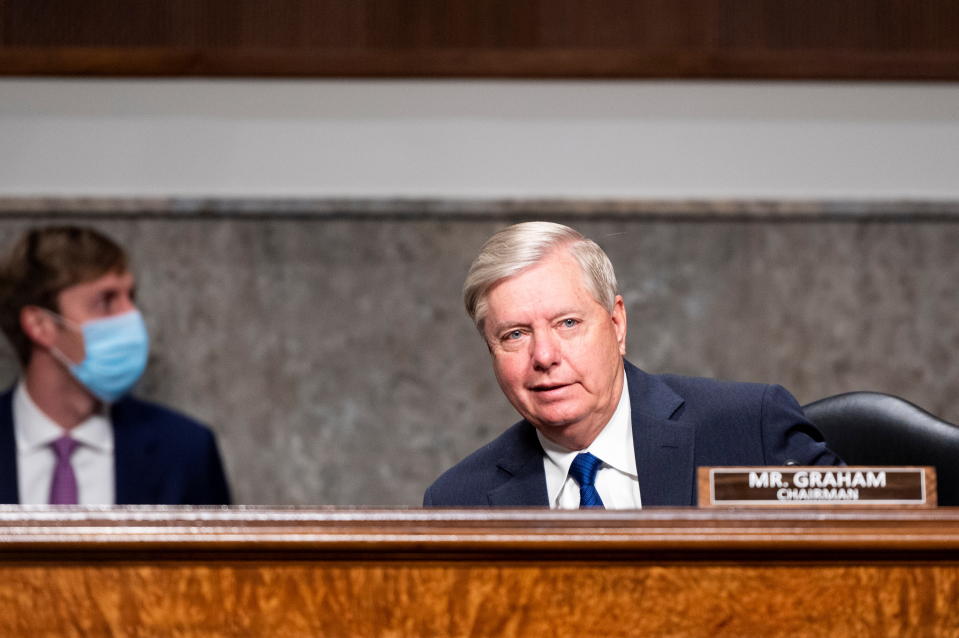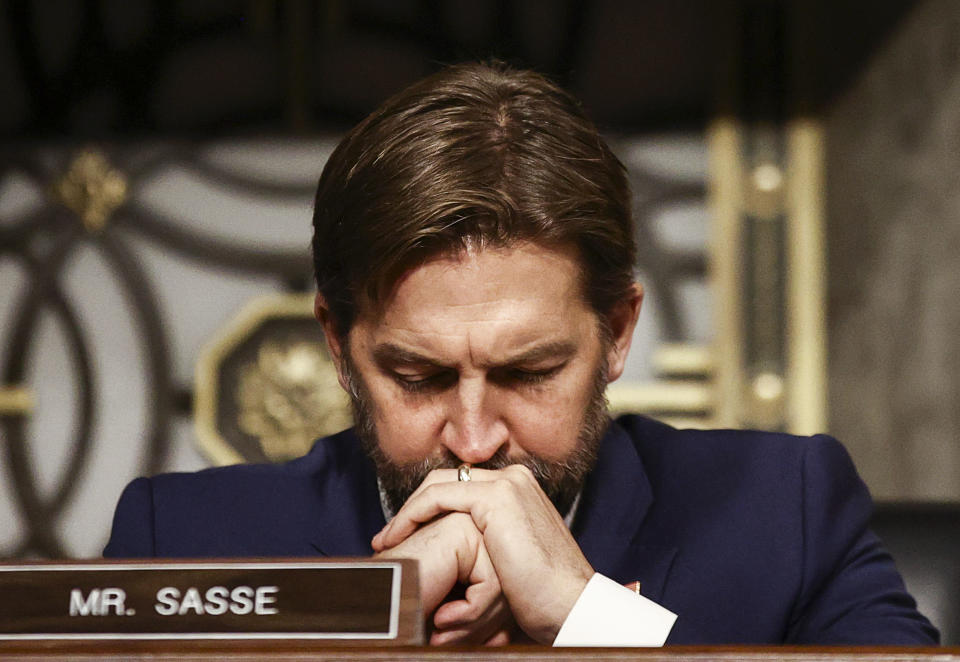Senators say Facebook, Twitter moderation is a 'whack-a-mole problem' 'run amok'
Senators clashed Tuesday on their reasons for supporting reforms to the internet law that exempts Facebook (FB), Instagram, Twitter (TWTR), YouTube, Google (GOOG)(GOOGL), and others, from lawsuits over content moderation, yet most agreed that efforts to reform it could improve an online environment that’s gotten out of hand.
“What we're trying to do is look at Section 230, and to see if it needs to be modified or changed because [the law] basically allows social media platforms like Twitter and Facebook to pass on information without legal liability,” Senate Judiciary Committee Chairman Sen. Lindsey Graham (R-SC) said during a hearing to question CEO Mark Zuckerberg and Twitter’s CEO Jack Dorsey.
The hearing was the second in the past month to address concerns over the power that Section 230 of the Communications Decency Act gives major online platforms to decide what is posted on their sites — this time with a focus on how that power can influence elections. The hearing also addressed efforts by Twitter and Facebook to block and limit sharing of a New York Post article claiming President-elect Joe Biden met with an adviser to Burisma, a Ukrainian energy company whose board his son, Hunter, serves on.

Many Democrats and Republicans would like to reform Section 230, but they have differing perspectives as to why a liability shield for Big Tech is problematic.
Sen. Richard Blumenthal (D-CT) took issue with Big Tech’s ability to use the law to protect their companies even when they fail to protect their own users. Though he described the platforms as “terrifying tools of persuasion and manipulation, with power far exceeding the robber barons of the Gilded Age,” Blumenthal applauded their intervention with user posts containing false or misleading information.
“The recent actions you have taken, in fact, are simply to check the truth of what appears on-platform — often it is voter suppression, and incendiary, malicious misinformation, and you tried to slow its insidious spread. That's not censorship. That's moral and civic responsibility,” Blumenthal said.
Republicans, on the other hand, say that Big Tech uses Section 230 as a weapon to censor conservative voices and points of view, including the New York Post article about Hunter Biden.
“You have used this power to run amok,” Sen. Marsha Blackburn (R-TN) told Zuckerberg and Dorsey, referring to the companies’ ability to moderate content.

Republican senators likened Twitter and Facebook’s decisions to leave up, take down, or place warning labels on user content as those of editors or publishers, both which remain responsible for defending lawsuits brought based on content they publish.
“You are engaged in publishing decisions,” Ted Cruz (R-Texas) told Dorsey, pointing to the company’s decision to initially block the New York Post story, a tweet of the story by a Politico reporter, and warnings over tweets about voter fraud saying that the problem is “extremely rare.”
Cruz and Sen. Ben Sasse (R-NE) — one of the few senators skeptical of amending Section 230 — asked the CEOs to provide data showing the number of liberal versus conservative posts blocked or moderated by the social media companies. Zuckerberg and Dorsey gave inconclusive answers as to whether the information would be made available to the committee.
While Republicans typically accuse Big Tech of over-moderation, Democrats lean towards claiming they don’t moderate content aggressively enough. Democratic Senator Patrick Leahy (D-VT) questioned whether the growing number of users and accounts online poses more moderation responsibility than platforms can handle. He highlighted the difficulties of curbing not only election-related content, but hate speech.
“In some ways you’ve got a Whack-a-Mole problem here,” Leahy said.
For his part, Blumenthal, the Democratic Senator from Connecticut, proposed a radical solution to solve this problem. “I urge, in fact, a breakup of tech giants, because they misuse their bigness,” Blumenthal said, adding that he considers the liability protection as “way too broad,” and that he’d put both Section 230 reform, as well as repeal, on the table. Blumenthal also criticized his Republican committee members for giving Google a “free pass” from the hearing.
Alexis Keenan is a legal reporter for Yahoo Finance and former litigation attorney.
Follow Alexis Keenan on Twitter @alexiskweed.
Follow Yahoo Finance on Twitter, Facebook, Instagram, Flipboard, SmartNews, LinkedIn, YouTube, and reddit.
Find live stock market quotes and the latest business and finance news.
For tutorials and information on investing and trading stocks, check out Cashay.

